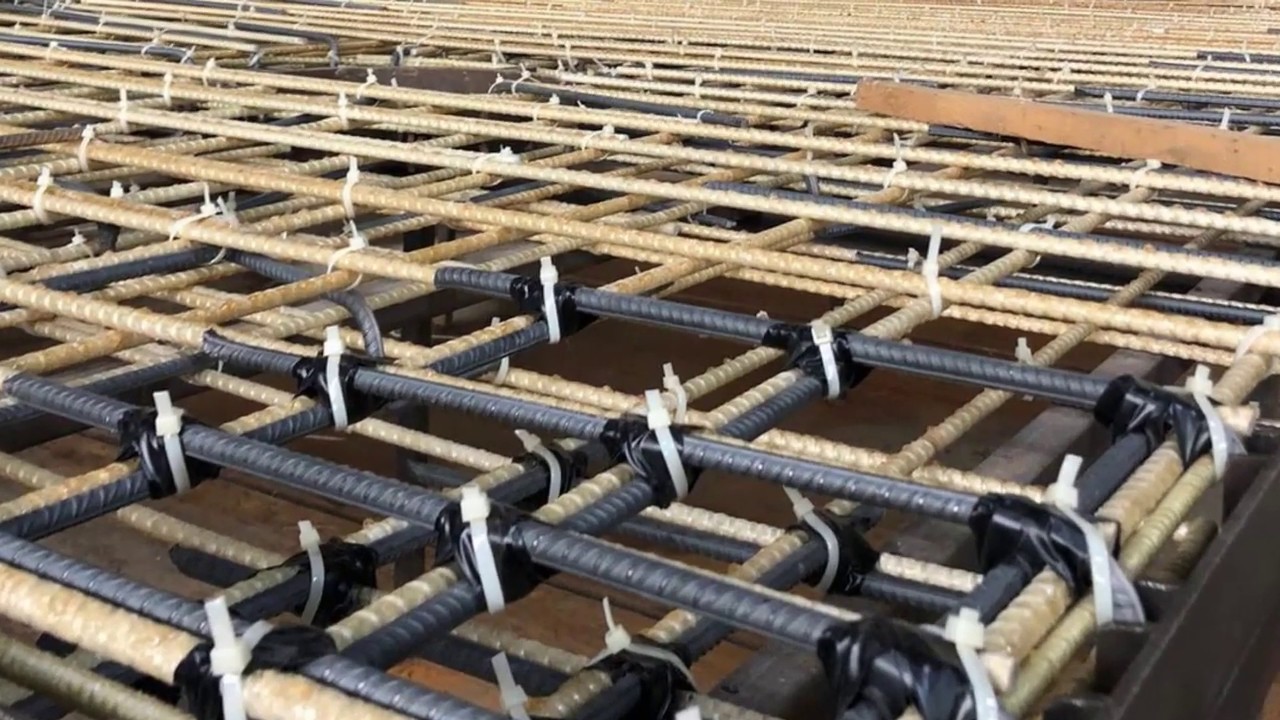- April 11, 2024
- Posted by: wellcoindustries
- Category: Rebar
Introduction to Fiberglass Reinforced Polymer Rebar
In the evolving landscape of construction, especially in coastal areas, the emergence of Fiberglass Reinforced Polymer (FRP) rebar represents a significant shift. This innovative material, distinguished by its resilience and strength, is redefining the standards of durability and reliability in construction practices. Unlike traditional steel rebar, FRP rebar offers unique advantages in coastal environments, where saltwater and humid conditions typically accelerate corrosion and degradation.

The Science Behind Fiberglass Reinforced Polymer (FRP)
FRP rebar is crafted from a composite material made of a polymer matrix reinforced with fibers, typically glass. This composition provides an exceptional strength-to-weight ratio, surpassing that of many metals, and offers remarkable resistance to corrosion, making it ideal for use in harsh environmental conditions. The science of FRP is grounded in the synergistic properties of its components, where the polymer matrix protects the fibers from environmental damage while the fibers bestow the composite with strength and stiffness.
Comparison: FRP Rebar vs. Traditional Steel Rebar
A direct comparison between FRP rebar and traditional steel rebar highlights significant differences, particularly in terms of corrosion resistance, weight, and durability. FRP rebar’s immunity to rust and corrosion presents a compelling case for its use in coastal construction, where these factors are a constant threat to the integrity of steel-reinforced structures.
The Advantages of Using FRP Rebar in Coastal Environments
Corrosion Resistance: A Game Changer for Coastal Construction
The inherent corrosion resistance of FRP rebar makes it a game-changer in coastal construction. This characteristic not only extends the lifespan of structures but also significantly reduces maintenance and replacement costs.
Longevity and Durability in Harsh Marine Conditions
The durability of FRP rebar in marine environments ensures that structures remain safe and stable over longer periods, resisting the wear and tear that typically afflicts metal-reinforced constructions.
Cost-Effectiveness Over the Long Term
While the initial investment in FRP rebar may be higher than traditional steel, its longevity and reduced maintenance requirements render it a cost-effective solution over the lifespan of a construction project.
Real-World Applications of FRP Rebar in Coastal Projects
Real-world applications of FRP rebar in coastal projects demonstrate its effectiveness and reliability. Through case studies and examples, the benefits of FRP rebar in actual construction projects come to light, showcasing significant improvements in longevity, durability, and overall performance.
Challenges and Considerations in Implementing FRP Rebar
While FRP rebar offers numerous benefits, its implementation comes with challenges, including installation nuances and initial cost concerns. Addressing these challenges requires innovative solutions and a commitment to educating the construction industry on the advantages of FRP rebar.
The Future of Coastal Construction with FRP Rebar
The future of coastal construction is bright with the adoption of FRP rebar. Predictions for its increased usage highlight a shift towards more sustainable, durable, and cost-effective construction methodologies. As the industry continues to recognize the environmental and practical benefits of FRP rebar, its role in future construction projects is expected to grow exponentially.
FAQs: Everything You Need to Know About FRP Rebar in Coastal Construction
Understanding FRP rebar’s benefits, cost implications, applicability, challenges, and environmental impact provides a comprehensive overview of why it is becoming a preferred choice in coastal construction.
Conclusion: The Impact of FRP Rebar on Coastal Construction’s Future
Fiberglass Reinforced Polymer rebar is not just an alternative to traditional materials; it is a pioneering solution that is reshaping the future of coastal construction. With its superior properties, including corrosion resistance, durability, and sustainability, FRP rebar stands as a testament to the advancements in construction technology. As the construction industry continues to evolve, the adoption of FRP rebar in coastal projects is a clear indicator of a shift towards more resilient, efficient, and environmentally friendly practices.
